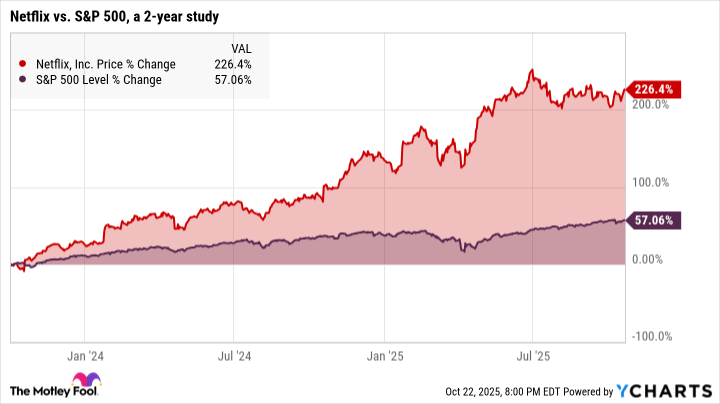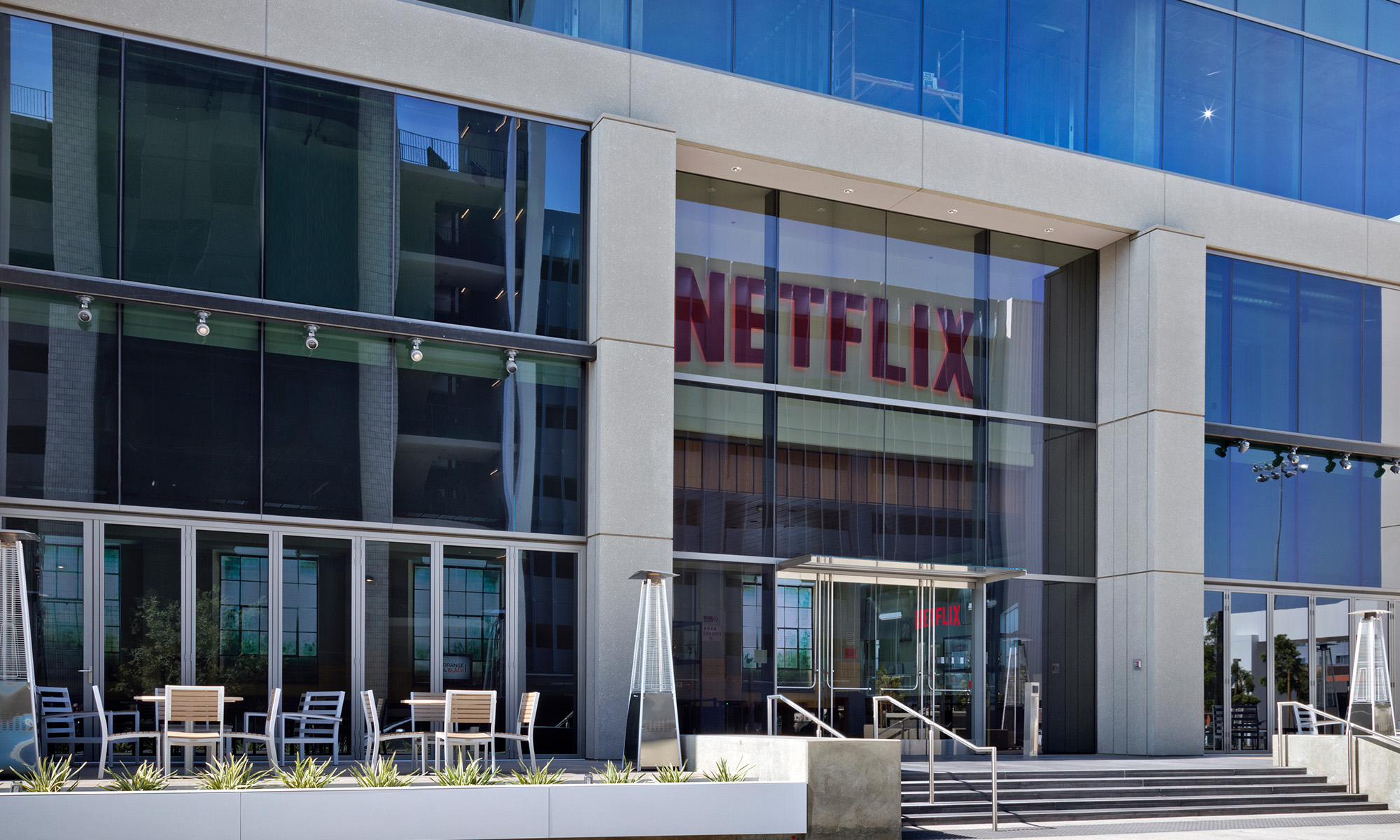Netflix (NFLX 0.48%) stock has been soaring in recent years. At the end of Oct. 21, the stock price had more than tripled in two years, quadrupling the returns of the S&P 500 (^GSPC 2.06%) market index over the same period:
But Netflix's momentum hit a brick wall that evening. The third-quarter earnings report missed Wall Street's bottom-line targets for the first time since January 2024. Investors slammed their "sell" buttons, and Netflix's stock fell 10.1% the next day on seven times its average daily trading volume.
Was that the end of Netflix's multiyear surge, or should investors see the price drop as a buy-in opportunity? I think it's the latter, and here's why.

Image source: Netflix.
The Brazilian tax bill that spooked investors
Netflix missed its own operating margin forecast by 3.3 percentage points, which works out to $380 million of lost operating profit. The company took a $619 million charge related to an ongoing tax dispute with Brazilian authorities, more than explaining the profit miss.
This was an unexpected expense because Netflix had won a court ruling in 2022 that cleared the company of this particular taxation. But a Brazilian supreme court ruling recently expanded the scope of this tax, making Netflix set aside some funds to account for this new liability. Other companies doing a lot of business in Brazil may face similar issues, and the matter is still pending lower-court challenges and tax calculation details.

NASDAQ: NFLX
Key Data Points
The $619 million issue and the $49 billion panic
Netflix accounted for an unexpected $619 million tax payment, which is expected to be a one-time expense. In response, investors cut $48.8 billion off Netflix's market cap. That looks like an overreaction to me, though it's fair to say that the stock remains quite expensive anyhow. After the price correction, the stock is still up by a market-crushing 179% in the last two years.
So it's not a stock for price-sensitive value investors, but growth-oriented stock pickers could see this drop as a welcome buying opportunity.







